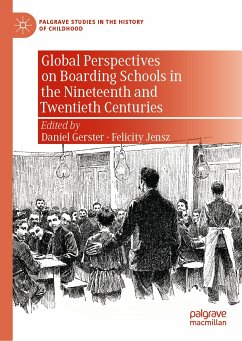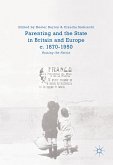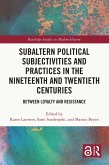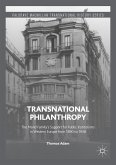In the nineteenth and twentieth centuries, thousands of pupils attended boarding schools in various places across the globe. Their experiences were vastly different, yet they all had in common that they were separated from their families and childhood friends for a period of time in order to sleep, eat, learn and move within the limited spatial sites of the boarding school. This book frames these 'boarding schools' as a global and transcultural phenomenon that is part of larger political and social developments of European imperialism, the Cold War, and independence movements. Drawing together case studies from colonial South Africa, colonial India, Dutch Indonesia, early twentieth-century Nigeria, Fascist Spain, Ghana, Nazi Germany, nineteenth-century Ireland, North America and the Soviet Union, this edited collection examines the ways in which boarding schools extracted pupils from their original social background in order to train, mold and shape them so that they could fit intothe perceived position in broader society. The book makes the broader argument that framing boarding schools as a global phenomenon is imperative for a deepened understanding of the global and transnational networks that linked people as well as ideas and practices of education and childhood in the nineteenth and twentieth centuries.
Daniel Gerster is Senior Researcher at the Research Centre for Contemporary History (Forschungsstelle für Zeitgeschichte) in Hamburg, Germany. His principle areas of research are the history of gender, religion, and education in Germany and Europe in nineteenth and twentieth centuries. He is author of Friedensdialoge im Kalten Krieg. Eine Geschichte der Katholiken in der Bundesrepublik, 1957-1983 (2012) and co-editor of God's Own Gender? Masculinities in World Religions (2018).
Felicity Jensz is a historian in the Cluster of Excellence (2060) Religion and Politics at the University of Münster, Germany. Her research focuses on British and German colonial history, gender, religion, and education in the long nineteenth century. Her most recent publications include Missionaries and Modernity (2022) and Legacies of David Cranz's 'Historie von Grönland' (1765) (co-edited with Christina Petterson, Palgrave Macmillan, 2021).
Dieser Download kann aus rechtlichen Gründen nur mit Rechnungsadresse in A, B, BG, CY, CZ, D, DK, EW, E, FIN, F, GR, HR, H, IRL, I, LT, L, LR, M, NL, PL, P, R, S, SLO, SK ausgeliefert werden.









